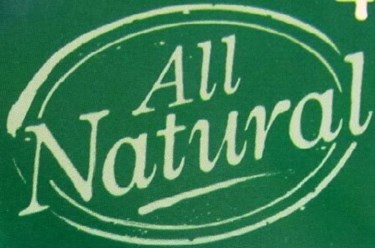Natural Food Labels Entice Shoppers, But Are Other Factors More Significant?
By Isaac Fletcher, contributing writer, Food Online

Labeling foods as natural has become a topic of much debate, but as consumers become more aware of what the label actually does or does not imply, other factors may become more influential in purchasing decisions
It should come as little surprise that the “natural” label on many foods is essentially meaningless. Although the USDA has issued some rules and regulations regarding what can be labeled natural, these rules apply only to meat and eggs, and, even then, the guidelines are fairly loose. Some companies have tried to explain definitions of what is considered natural, but with the ability to purchase such products as all-natural Cheetos and all-natural butter flavor granules, the definitions are convoluted at best.
So why are food producers so eager to slap this label on products? The answer is simple: it works. A recent Consumer Reports survey revealed that nearly 60 percent of respondents regularly check to see if a product is labeled “natural” before making a purchase. Given that many consumers wrongly believe this label makes a product superior to others, the FDA discourages food producers from claiming products are all-natural.
The survey also revealed that a majority, 66 percent, of respondents check their food for an indication that it was grown or produced locally. To respondents, a product being locally grown ranks higher in importance than it being natural — the previously mentioned nearly 60 percent — or organic, 49 percent, and 92 percent claim it is very important to them to support local farmers and food producers. Additionally, nearly 80 percent say they are willing to pay more for fruits and vegetables produced by workers who earned a living wage, with 34 percent claiming they would be willing to pay up to 50 cents more per pound.
While many shoppers are still attracted to food labeled “natural”, further education and regulation on the issue will likely end the vagueness associated with the claim. With consumers becoming increasingly interested in local products, “locally grown” may become the label of choice. In the end, consumers demand transparency that natural food labels simply cannot deliver.
